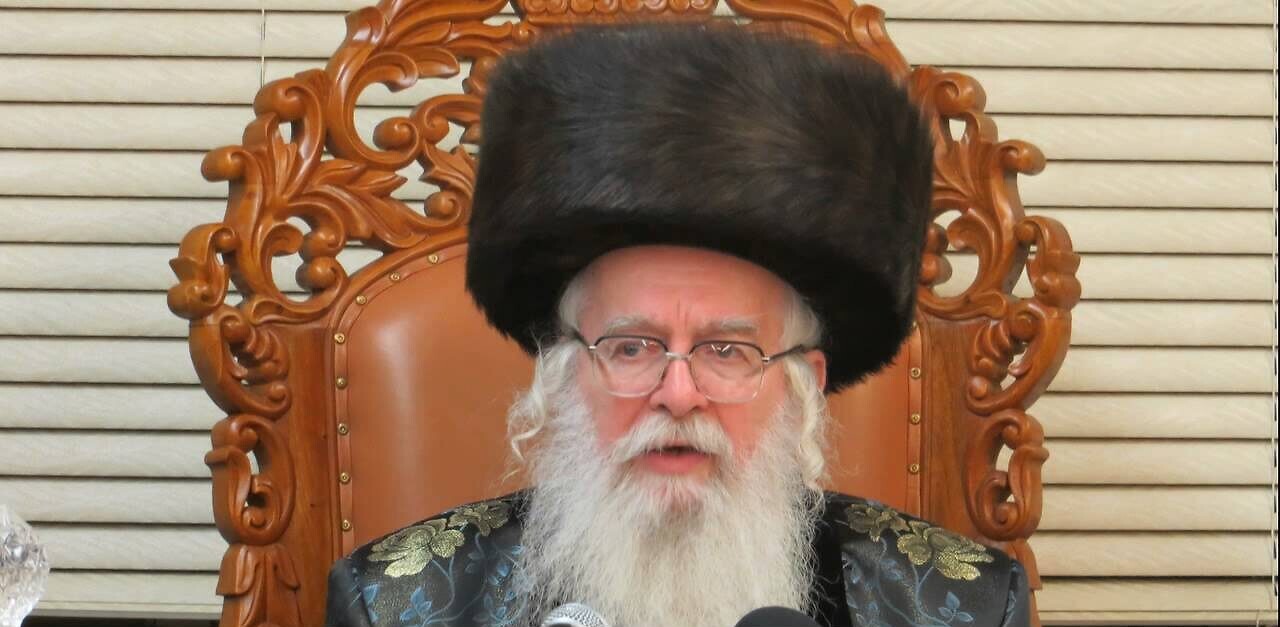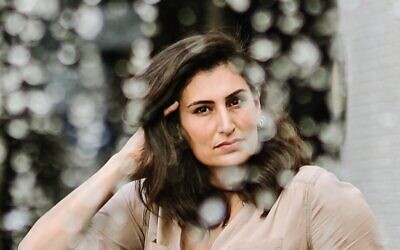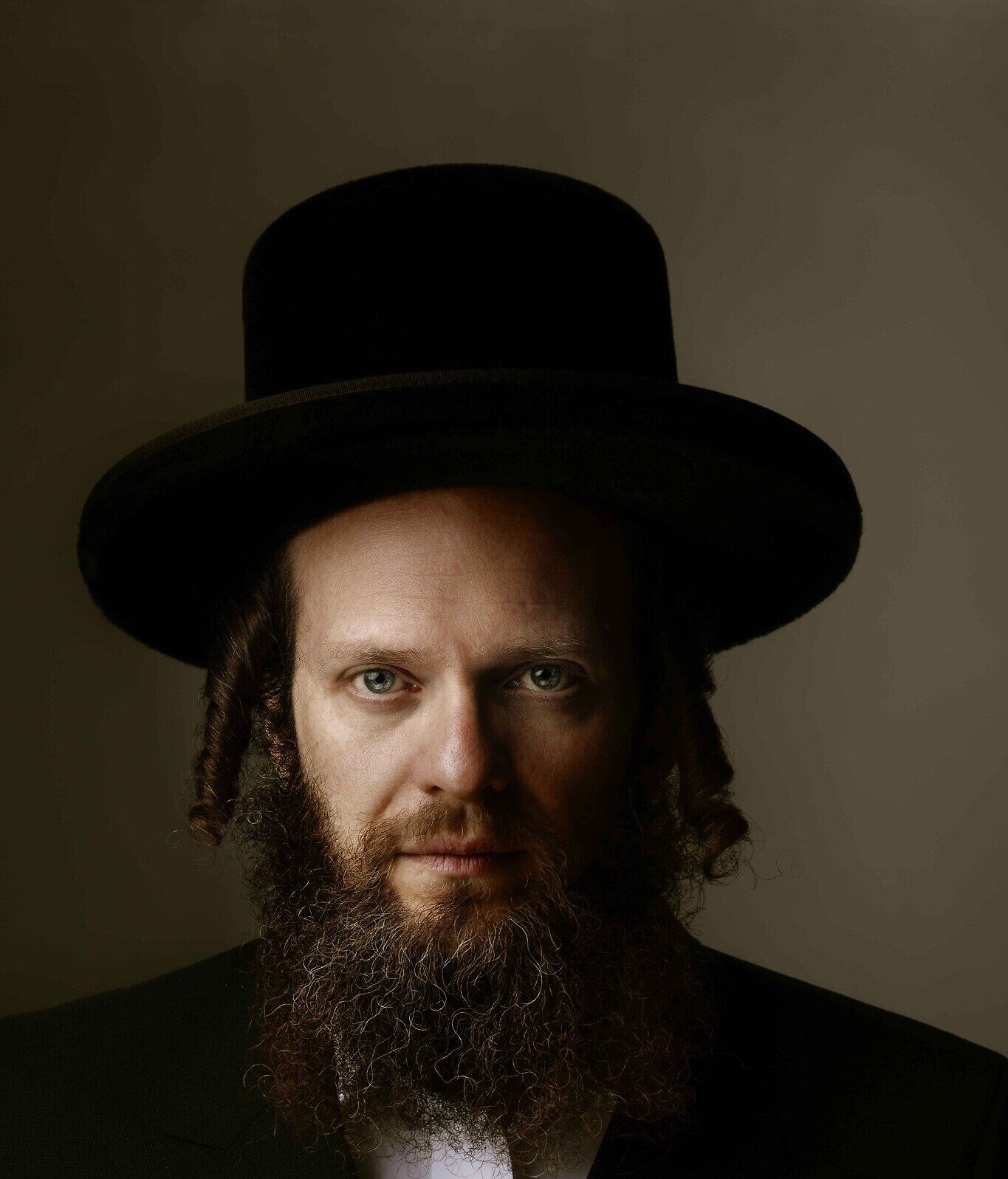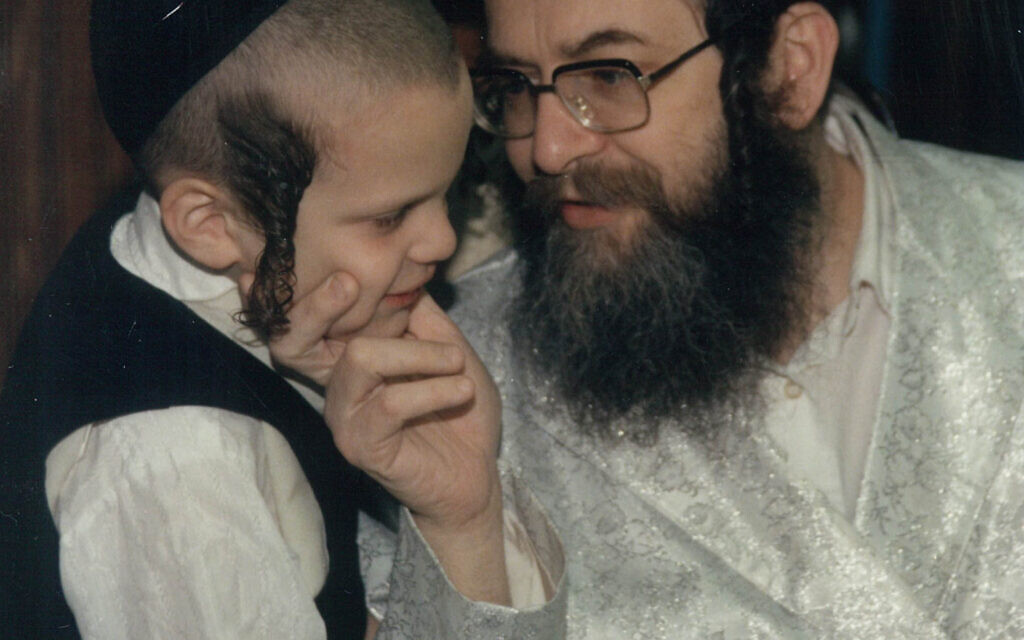Sexual abuse, underage marriages and physical violence – Chasidic life in a remote corner of Israel
Last week the BBC aired a film that exposes the systematic abuse of children in the Breslov community. We spoke to its director
Bat-Dor Ojalvo is the director of one of the year’s most important films — In the Name of the Father — screened in the BBC’s prestigious Storyville slot last week. It is the deeply disturbing account of a Breslov Chasidic community, set up in a northern Israeli town, Yavniel. The man who encouraged people to move to Yavniel, Rabbi Eliezer Schik, died in 2015, aged 74. But as the film shows, the rabbi, working from Brooklyn, presided over a massively corrupt culture of sexual abuse of young girls and boys, of illegal under-age marriages, and of physical and emotional violence.
It took Ojalvo and her team seven years of relentless, dedicated research, to make the film. The rabbi was universally known as Mohorosh, and witnesses in the film tell Ojalvo’s camera that “he is not dead, how could he be dead? He is a tzaddik” (righteous person).

But besides Mohorosh’s followers, Ojalvo has secured two key testimonies: from Moishi, the rabbi’s 44-year-old Brooklyn-based son, and from members of the Boloton family, some of whom left Yavniel and now lead secular lives.
Get The Jewish News Daily Edition by email and never miss our top stories Free Sign Up
Originally there were three films, shown on Israel’s Kan TV, but they were edited down to the Storyville 90- minute slot. And so I learn that Moishi, who is now mounting a legal action to claim a massive financial inheritance from his father, as not an only child, as the BBC programme suggests. He has in fact three sisters, whom Orthodox law does not recognise as claimants; and an older brother, who remains in Brooklyn, where he owns his parents’ building, and who has been described to Ojalvo as “not healthy, mentally” and thus not part of Moishi Schik’s legal initiative.
 For Ojalvo, it was “very important to bring all sides to sit in front of the camera”, whether or not they remained devotees of Mohorosh, or were ex-members of the Yavniel community. To conduct many of the interviews, she wore modest, religious clothing, particularly because some of the conversations took part in the community’s synagogue. She slowly gained people’s trust — and because she spent so much time in Yavniel, she thinks that people became comfortable with her, asking after her children, and accepting that she herself is a secular Jew.
For Ojalvo, it was “very important to bring all sides to sit in front of the camera”, whether or not they remained devotees of Mohorosh, or were ex-members of the Yavniel community. To conduct many of the interviews, she wore modest, religious clothing, particularly because some of the conversations took part in the community’s synagogue. She slowly gained people’s trust — and because she spent so much time in Yavniel, she thinks that people became comfortable with her, asking after her children, and accepting that she herself is a secular Jew.
Some of the most remarkable footage in the film shows violent attacks against Moishi and also against members of the community perceived to have complained against the “party line” — the strict enforcement of under-age marriages and the casting out of people such as women who wanted a divorce, or a child who reported sexual abuse.
“You see interviews with about 12 people in the film, but in fact we spoke to around 50. Many said they wouldn’t appear on camera, but they gave us access to their computers, and old tapes. We took that material to a special laboratory and it was worked on to show in our film. Some of the people who said they didn’t want to appear on screen nevertheless still helped us, and are still helping. One man told me, ‘You are shouting from my throat’”.
Two central questions: was Mohorosh aware of the sustained level of abuse, and did Ojalvo believe Moishi?
To the first, she has no doubt. “He was totally aware of the sexual abuse. People would write faxes to him in New York and they would ask him anything and everything, from what did a scary dream mean, to whether it was permitted to keep cats. But many of these questions concerned sexual abuse, who was a victim, who was carrying it out, and exactly what was being done”. She is as certain as she can be that the rabbi knew what was taking place — but because of the stricture against being a “moiser” — one who informs or betrays, usually to the outside authorities — Rabbi Schik was able to clamp down on the complainants, often by throwing them out of Yavniel.
In one shocking instance, Ojalvo says, a nine-year-old boy said he had been raped by a neighbour. Mohorosh threw this child out of the community and his mother was forbidden to make contact with him — to which she agreed. What became of the boy? “He became addicted to drugs and ended up living on charity. When it came to having his own children, he couldn’t be a father to them and ended up giving them away. So what we are seeing is generation after generation of shame and misery.”

As for Moishi, Ojalvo admits she was very sceptical at first — but then adds that so was he. Each was wary of the other, and at one point she made him sign an agreement promising not to sue people who spoke disparagingly of him on camera. “I was so scared at the beginning. I wasn’t sure what I would find. One man even said that Moishi had murdered someone; I told Moishi, it’s not your movie, it’s mine. I was very clear and open with him. Everything was on the table.”
She concludes that he was “quite brave” and said things about himself which did not show him in the best light. Moishi’s bitterness is understandable: he says on camera that he himself was sexually abused in his father’s New York yeshiva, that his father knew, and did nothing about it. (Moishi and his wife and children never lived in Yavniel, but the abuse appears to have been part of the culture of the community).
Now, since the screening of In the Name of the Father in Israel, the police, the attorney-general’s office, the Ministry of Education and the Ministry of Social Welfare have become involved in a belated but welcome inquiry into what went wrong in Yavniel. Some members of the Breslov community have told Ojalvo that they are getting involved in workshops, and learning how to create a safe space for their children. She and her film team have given hours oftestimony to the police.
But the illegal, under-age marriages are still taking place, often at night where they cannot be tracked. That is an issue which Israeli authorities must deal with, urgently.
In The Name of The Father is available to watch on BBC iPlayer

Thank you for helping to make Jewish News the leading source of news and opinion for the UK Jewish community. Today we're asking for your invaluable help to continue putting our community first in everything we do.
For as little as £5 a month you can help sustain the vital work we do in celebrating and standing up for Jewish life in Britain.
Jewish News holds our community together and keeps us connected. Like a synagogue, it’s where people turn to feel part of something bigger. It also proudly shows the rest of Britain the vibrancy and rich culture of modern Jewish life.
You can make a quick and easy one-off or monthly contribution of £5, £10, £20 or any other sum you’re comfortable with.
100% of your donation will help us continue celebrating our community, in all its dynamic diversity...
Engaging
Being a community platform means so much more than producing a newspaper and website. One of our proudest roles is media partnering with our invaluable charities to amplify the outstanding work they do to help us all.
Celebrating
There’s no shortage of oys in the world but Jewish News takes every opportunity to celebrate the joys too, through projects like Night of Heroes, 40 Under 40 and other compelling countdowns that make the community kvell with pride.
Pioneering
In the first collaboration between media outlets from different faiths, Jewish News worked with British Muslim TV and Church Times to produce a list of young activists leading the way on interfaith understanding.
Campaigning
Royal Mail issued a stamp honouring Holocaust hero Sir Nicholas Winton after a Jewish News campaign attracted more than 100,000 backers. Jewish Newsalso produces special editions of the paper highlighting pressing issues including mental health and Holocaust remembrance.
Easy access
In an age when news is readily accessible, Jewish News provides high-quality content free online and offline, removing any financial barriers to connecting people.
Voice of our community to wider society
The Jewish News team regularly appears on TV, radio and on the pages of the national press to comment on stories about the Jewish community. Easy access to the paper on the streets of London also means Jewish News provides an invaluable window into the community for the country at large.
We hope you agree all this is worth preserving.
-
By Brigit Grant
-
By Laurent Vaughan - Senior Associate (Bishop & Sewell Solicitors)
-
By Laurent Vaughan - Senior Associate (Bishop & Sewell Solicitors)
-
By Laurent Vaughan - Senior Associate (Bishop & Sewell Solicitors)
-
By Laurent Vaughan - Senior Associate (Bishop & Sewell Solicitors)






















